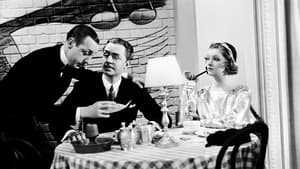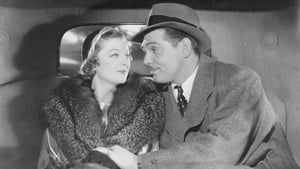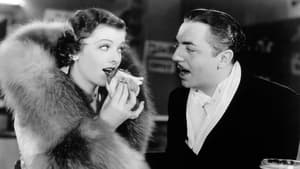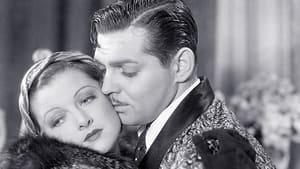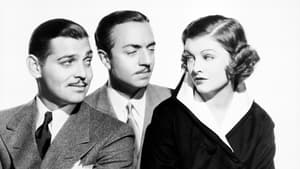Contact: info@alwanfilm.com
Video Sources 0 Views
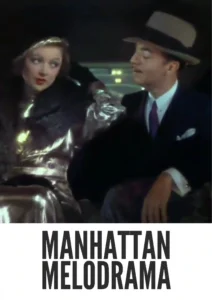
Synopsis
Manhattan Melodrama 1934 Colorized Review: A Classic Noir with Timeless Appeal

Introduction
In the pantheon of classic American cinema, Manhattan Melodrama (1934) holds a distinguished place. Directed by W.S. Van Dyke, this film noir is not only a testament to the genre’s early development but also a striking example of the era’s storytelling prowess. The film’s impact is magnified by its vibrant cast, including the iconic Clark Gable and the mesmerizing Myrna Loy, alongside the rising star William Powell. In this review, we will delve into the significance of Manhattan Melodrama, exploring its story, characters, and the broader implications of its place in film history.
Check The Full Colorized Movies List
Check Our Colorized Movies Trailer Channel
Understanding Manhattan Melodrama 1934 Colorized: Director, Cast, and Genre
Director’s Vision
W.S. Van Dyke, known for his efficient and effective filmmaking style, directed Manhattan Melodrama (1934) with a keen sense of drama and character. Van Dyke’s vision was to create a compelling narrative that intertwined crime, romance, and moral conflict, all set against the backdrop of New York City. His approach to direction emphasized the emotional depth of the characters while maintaining a brisk, engaging pace. The film’s success can be attributed to Van Dyke’s ability to balance intense drama with moments of light-heartedness, creating a well-rounded cinematic experience.
The Iconic Performance of Actors
The cast of Manhattan Melodrama (1934) is a major factor in its enduring appeal. Clark Gable, at the height of his career, delivers a powerful performance as Blackie Gallagher, a charming but morally ambiguous gangster. Gable’s portrayal brings a magnetic intensity to the role, showcasing his talent for playing complex characters.
Myrna Loy, who plays the role of Eleanor, Blackie’s love interest, provides a compelling counterbalance with her grace and sophistication. Loy’s performance adds depth to the romantic elements of the story, highlighting her ability to navigate both drama and romance with equal skill.
William Powell, cast as the principled lawyer Jim Wade, completes the trio of leads with his nuanced portrayal of a man caught between personal and professional dilemmas. Powell’s performance adds a layer of moral conflict to the film, making his character’s choices all the more impactful.
Exploring the Genre
Manhattan Melodrama (1934) is a quintessential example of early film noir. Noir films are characterized by their dark, moody aesthetics, complex characters, and moral ambiguity. Manhattan Melodrama fits these conventions with its exploration of crime, romance, and ethical dilemmas. The film’s setting in the gritty underbelly of New York City adds to its noir credentials, creating a compelling atmosphere that draws viewers into its morally complex world.
Exploring the World of Manhattan Melodrama 1934 Colorized: Plot and Characters
Detailed Synopsis
Manhattan Melodrama (1934) follows the intertwined lives of three central characters: Blackie Gallagher (Clark Gable), a charming gangster; Jim Wade (William Powell), a principled lawyer; and Eleanor (Myrna Loy), the woman who loves them both. The film opens with Blackie and Jim as childhood friends who take different paths in life—Blackie becomes a notorious gangster, while Jim chooses a career in law.
The story explores their complex relationship as adults, particularly as Jim becomes the district attorney determined to clean up the city, while Blackie remains entrenched in his criminal activities. Eleanor, who has loved both men, finds herself in the middle of their conflicting worlds. The narrative delves into themes of friendship, loyalty, and the moral consequences of their choices.
Key moments in the film include intense confrontations between Blackie and Jim, dramatic courtroom scenes, and emotional moments that reveal the characters’ inner struggles. The film’s climax brings these elements to a head, culminating in a resolution that highlights the moral complexities of the characters’ decisions.
The Complex Protagonist and Memorable Supporting Characters
The characters in Manhattan Melodrama (1934) are richly developed and memorable. Blackie Gallagher, portrayed by Clark Gable, is a charismatic yet morally ambiguous figure whose charm masks a darker side. His relationship with Jim Wade is central to the film’s conflict, illustrating the complexities of their friendship and the impact of their divergent paths.
Jim Wade, played by William Powell, is the moral center of the film. His character grapples with the ethical implications of his role as a lawyer and his personal connection to Blackie. Eleanor, portrayed by Myrna Loy, is a pivotal figure whose love for both men adds emotional depth to the story.
Supporting characters, including various members of Blackie’s criminal gang and Jim’s legal team, add further dimension to the film’s narrative, contributing to its rich tapestry of relationships and conflicts.
The Art of Film Noir
Understanding the Genre
Film noir is a genre that emerged in the 1940s, characterized by its dark, cynical tone and its focus on moral ambiguity. However, Manhattan Melodrama (1934) is an early example of noir elements that would become defining characteristics of the genre. The film’s exploration of crime, its morally complex characters, and its atmospheric setting foreshadow the conventions of classic film noir.
Development Over Time
Film noir evolved from early crime dramas and gangster films, incorporating elements of existentialism and psychological complexity. The genre gained prominence in the 1940s and 1950s, with films that featured hard-boiled detectives, femme fatales, and morally ambiguous protagonists. Manhattan Melodrama (1934) can be seen as a precursor to these later films, laying the groundwork for the genre’s development.
Manhattan Melodrama 1934 Colorized and Its Influence
Impact on Film Noir
Manhattan Melodrama (1934) has had a lasting influence on the film noir genre. The film’s exploration of crime, its morally complex characters, and its atmospheric setting are all hallmarks of noir cinema. The film’s success demonstrated the potential for combining dramatic storytelling with noir elements, paving the way for future films in the genre.
Directors and screenwriters who followed in the noir tradition drew inspiration from Manhattan Melodrama, incorporating its themes and stylistic elements into their own work. The film’s impact is evident in the way it helped shape the direction of noir cinema and its enduring appeal.
Legacy and Remakes
The legacy of Manhattan Melodrama (1934) extends beyond its influence on film noir. The film’s themes of crime, friendship, and moral conflict have resonated with audiences and filmmakers alike. The story’s exploration of the human condition and the complexities of personal relationships continue to be relevant in contemporary cinema.
The film’s success also led to remakes and reinterpretations, demonstrating its lasting impact on the genre. These adaptations have kept the story alive and introduced it to new generations of viewers.
Director’s Cinematic Legacy: Beyond Manhattan Melodrama 1934 Colorized
W.S. Van Dyke’s Influence
W.S. Van Dyke, known for his efficient filmmaking style and his ability to craft engaging narratives, made significant contributions to American cinema beyond Manhattan Melodrama (1934). Van Dyke’s career includes a diverse range of films, from crime dramas to comedies and adventure stories.
Van Dyke’s influence is evident in his ability to blend different genres and create compelling stories that resonate with audiences. His work continues to be celebrated for its innovation and its impact on the evolution of American cinema.
Themes Explored in Manhattan Melodrama 1934 Colorized
Crime, Friendship, and Moral Conflict
Manhattan Melodrama (1934) explores themes of crime, friendship, and moral conflict. The film’s depiction of Blackie Gallagher’s criminal activities and Jim Wade’s role as a lawyer highlights the moral complexities of their choices. The story examines the impact of their decisions on their relationships and their own sense of self.
The film also delves into themes of loyalty and betrayal, as the characters navigate their conflicting interests and personal dilemmas. These themes add depth to the story and contribute to its enduring appeal.
Reception and Controversy Surrounding Manhattan Melodrama 1934 Colorized
Initial Reviews and Audience Reactions
Upon its release, Manhattan Melodrama (1934) received positive reviews for its engaging narrative and strong performances. Critics praised Clark Gable’s portrayal of Blackie Gallagher, noting his ability to capture the character’s charisma and complexity. Myrna Loy and William Powell also received acclaim for their performances, adding to the film’s success.
The film’s exploration of crime and moral ambiguity was well-received, with audiences appreciating its dramatic tension and emotional depth. The film’s impact was further heightened by its status as an early example of film noir, contributing to its lasting legacy.
Where to Watch Manhattan Melodrama 1934 Colorized Online
For those interested in experiencing Manhattan Melodrama (1934), the film is available on several streaming platforms and digital services. Popular services such as Amazon Prime Video and Turner Classic Movies offer options for viewing the film online. Additionally, DVD and Blu-ray versions of the film are available for purchase, providing fans with access to both the original release and any special features.
FAQs About Manhattan Melodrama 1934 Colorized
Q: What are the main themes of Manhattan Melodrama (1934)?
A: Manhattan Melodrama (1934) explores themes of crime, friendship, and moral conflict. The film delves into the complexities of its characters’ choices and the impact of their decisions on their relationships.
Q: Who directed Manhattan Melodrama (1934)?
A: Manhattan Melodrama (1934) was directed by W.S. Van Dyke, known for his efficient filmmaking style and his contributions to various genres of cinema.
Q: How did Manhattan Melodrama (1934) influence the film noir genre?
A: Manhattan Melodrama (1934) is considered an early example of film noir elements, including its exploration of crime and moral ambiguity. The film’s success helped pave the way for the development of the noir genre in the 1940s and 1950s.
Q: Where can I watch Manhattan Melodrama (1934) online?
A: Manhattan Melodrama (1934) is available on popular streaming platforms such as Amazon Prime Video and Turner Classic Movies. DVD and Blu-ray versions of the film are also available for purchase.
Conclusion
Manhattan Melodrama (1934) remains a classic of American cinema, showcasing the early development of film noir and highlighting the talents of its exceptional cast. Directed by W.S. Van Dyke, the film’s exploration of crime, friendship, and moral conflict offers a compelling narrative that continues to captivate audiences. Its influence on the noir genre and its enduring legacy make it a significant work in the history of film. Whether viewed for its historical importance or its engaging story, Manhattan Melodrama (1934) stands as a testament to the power of classic cinema and its ability to resonate across generations.
